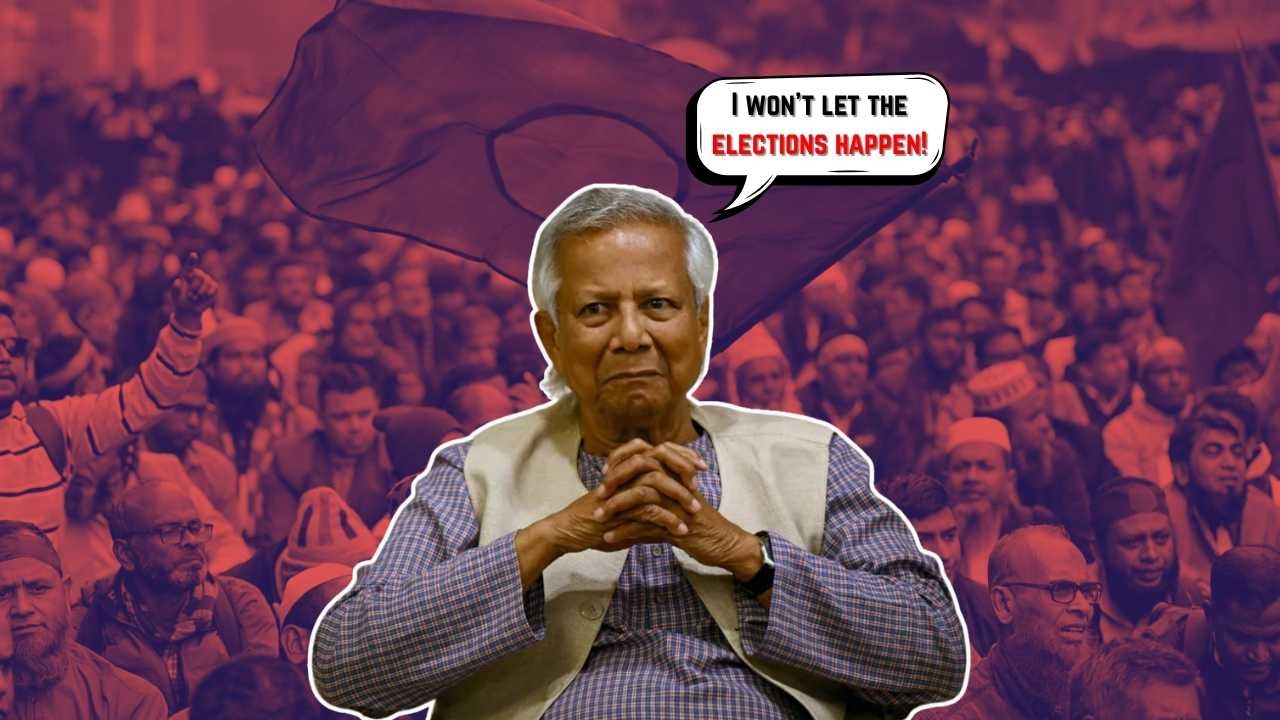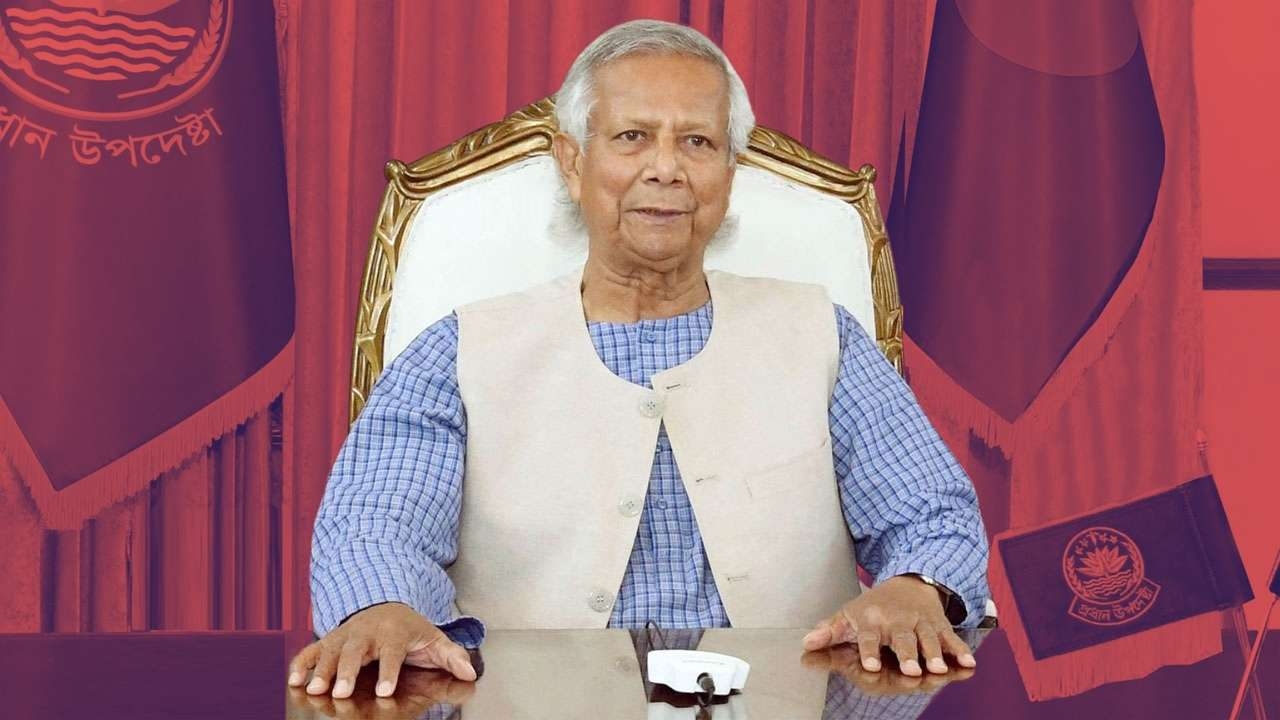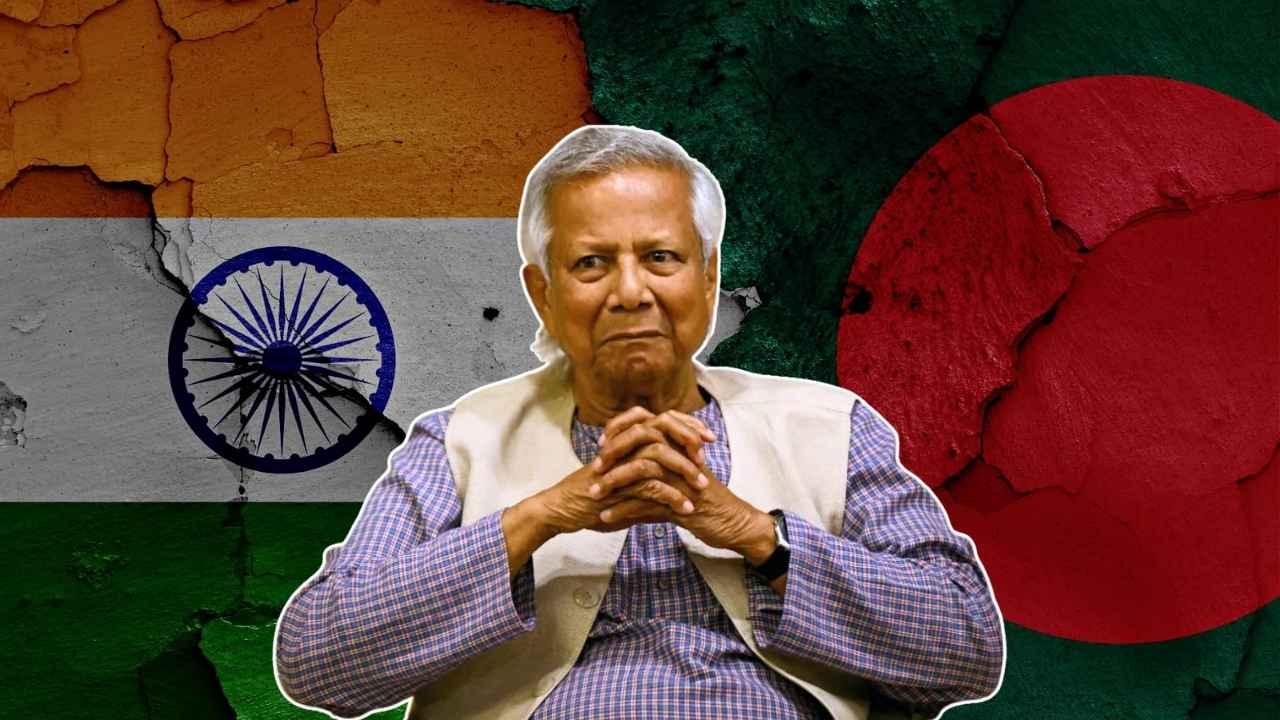Yunus Keeps Delaying Elections, Bangladesh Sinks… India Watches Quietly
13 Jun 2025 16:48:58

Muhammad Yunus, who took charge as Bangladesh's Chief Advisor on 5 August 2024 after the fall of the Awami League government, promised to hold elections within three months. But nearly ten months later, no elections have taken place, and the country is slipping into deeper trouble.
Instead of delivering reforms, Yunus has worsened the situation – from collapsing infrastructure and broken trade ties to strained international relations and growing unrest on the streets.

Faced with pressure from political parties and mounting public anger, Yunus has now vaguely said that elections might be held in the first half of April 2026. There’s still no fixed date, just more uncertainty and delay. He is urging political parties to prepare – but for what? Another broken promise?
In a BBC interview during his recent London visit, Yunus tried to defend his position. When asked about the Awami League’s ban, he claimed it’s only temporary. But his tone was unclear, and critics believe he is using legal tricks to sideline political rivals while keeping his own grip on power.
Will Bangladesh’s Next Leader Respect India’s Friendship?

Under the Awami League, Bangladesh and India enjoyed a period of strong cooperation. But many other parties, especially those favoured by Yunus’s camp, have shown open hostility towards India.
Take the Bangladesh Nationalist Party (BNP), for example. When they were in power from 2001 to 2006, they were closer to India’s enemies than India itself. They allegedly helped ULFA, a rebel group operating in Assam, with weapons, training, and shelter.
One major example was the 2004 arms smuggling case. Ten truckloads of heavy weapons – including AK-47s, rocket launchers, and grenades – were seized. The operation was linked to BNP’s then Home Minister, Lutfozzaman Babar. These weapons were meant to cross into India to fuel terrorism.
Then there’s Jamaat-e-Islami, a party banned during Sheikh Hasina’s rule. They continue to say Bangladesh’s freedom was an Indian conspiracy, and their ideology leans more towards Pakistan than their own country.
After Yunus came to power, new student-backed groups like the National Citizen Party (NCP) were formed. But violence, infighting, and public anger over looting and extortion have damaged their image. People no longer trust them to lead the nation.
Some smaller parties may try to form alliances, but they only appear during election season. Their influence is weak, and they are unlikely to gain enough support to lead the government.
Can Bangladesh Afford to Distance Itself from India?
No nation has progressed by turning its back on its neighbour. For Bangladesh, ignoring India is like cutting off its own lifeline. Whoever leads the next government must understand that good relations with India are not optional – they are essential.
Why Should India Care About Bangladesh’s Election?
India has a lot at stake in Bangladesh’s political future. Friendly governments like the Awami League helped bring peace, growth, and security to both sides.
But whenever BNP or parties like Jamaat-e-Islami gain power, India's internal enemies get shelter and support. If such groups return, it could fuel extremism near Indian borders and threaten national security.
This is why Bangladesh’s election is not just about who rules Dhaka… it’s also about India’s future safety and regional stability.